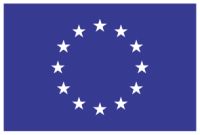European Union leaders condemn Belarus crackdown, expected to endorse sanctions
EU leaders condemned a crackdown against opposition protesters in Belarus on Friday and were expected to endorse new sanctions against top officials there after what they called "fundamentally flawed" elections.

Austrian Foreign Minister Ursula Plassnik, whose country holds the EU presidency, told reporters at a European Union summit that the leaders would discuss Belarus, where police stormed the opposition tent camp in Minsk early Friday.
Police detained hundreds of demonstrators who had spent a fourth night in a central square to protest President Alexander Lukashenko's election victory.
"I think we must take a clear stance about Belarus and it is the last dictatorship in Europe, it is a neighboring country to the European Union, and we have to give all possible support to democratic forces inside the country," Swedish Prime Minster Goran Persson said.
"We need to be firm, yes, and demonstrate that we are united inside the European Union how we talk about relations with Belarus, and also with Russia," he said.
The EU has already declared that the presidential vote, which saw Lukashenko returned to office for a third consecutive term, was not free and fair and violated international democratic norms.
"Events during the night have confirmed this negative assessment and we urge the Belarus authorities to respect the freedom of assembly and to release the prisoners," Plassnik said.
In a draft declaration to be endorsed by the 25 EU leaders, they call Belarus "a sad exception ... on a continent of open and democratic societies."
They conclude that the 25-nation bloc "is therefore determined to take restrictive measures against those politically and administratively responsible for violations of international electoral standards."
The EU already has in place a visa travel ban against six Belarusian officials, but not Lukashenko. New measures could include expanded travel bans and a freeze on assets.
"What happened last night is really very, very negative and young people on the street, they have a right to protest, to make really known their opinion about this regime," said Luxembourg Foreign Minister Jean Asselborn, who acknowledged that sanctions were unlikely to force Lukashenko out.
"If we speak about sanctions we have to be sure that the target is not the people," Asselborn said. "With sanctions we cannot change the regime."
No economic sanctions are foreseen, officials have said, adding they want to focus their attention on political leaders rather than punishing Belarusians.
Trade between the two stands at only about 0.1 percent of total EU trade flows. But some 4.99 billion euros (US$6 billion) of Belarus' total external trade of 13.85 billion euros (US$16.7 billion) in 2004 was with the European Union, according to EU figures.
Top exports to the EU consisted of mineral oils, lubricants and related materials, while top EU exports to Belarus were machinery and automotive products.
Belarus, however, is the main land transit route from EU countries to Moscow. Russian oil and gas pipelines to western Europe pass through the country, including part of the world's longest oil pipeline, which transports oil from central Russia to Germany.
The EU draft declaration urged Belarusian authorities "to allow the people of Belarus to exercise their freedom of assembly and expression," and called for police to release opposition protesters from detention.
Main opposition leader Alexander Milinkevich sent a letter to EU leaders Thursday, thanking them for their "moral support."
"Dear European leaders, citizens of a united Europe, Belarusian democratic forces are determined to continue the fight for changes in our country," he wrote. "We're not destroyed, we're not dejected, victory will be ours."
Austrian Chancellor Wolfgang Schuessel said Thursday that Lukashenko's electoral victory "can't be described as free and fair."
Members of the European Parliament also backed calls for the EU to get tough with Belarus.
The draft declaration said the EU would continue "its commitment to engage with Belarusian society by intensifying people to people contacts and enhancing access to independent sources of information", reports the AP.
D.M.
Subscribe to Pravda.Ru Telegram channel, Facebook, RSS!


